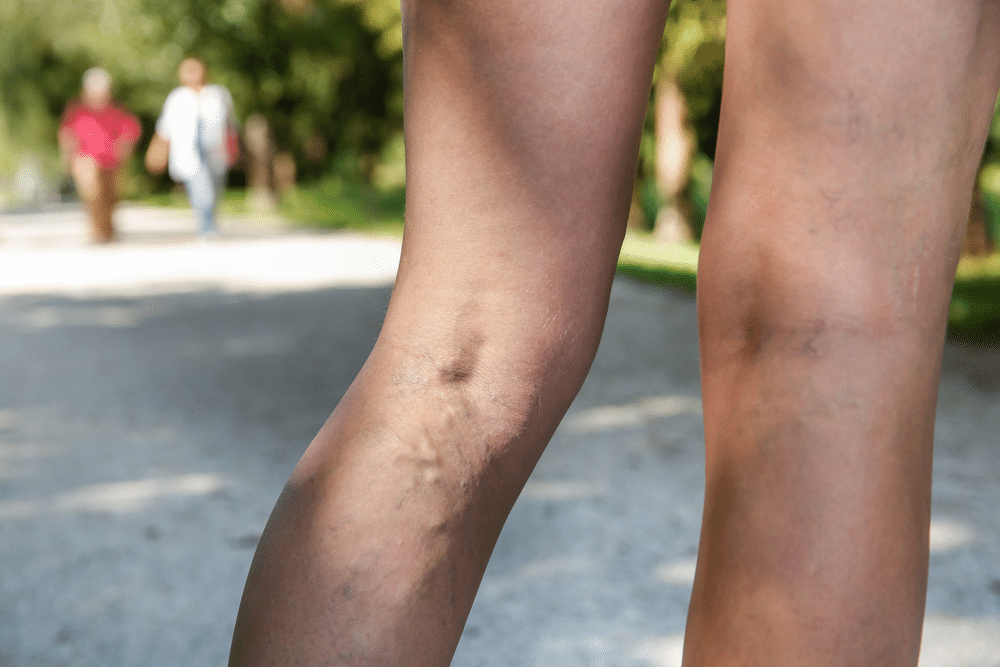It’s natural to want to throw off those winter clothes and spend some time outside in the sun when the weather gets nice; but when you have twisted, enlarged, or just plain visible veins, you may feel uncomfortable showing your skin. It’s good to know that foam sclerotherapy can remove these veins; and permanently. At VENUS Vein Clinic in Omaha, NE, we can help.
How Long Does Foam Sclerotherapy Last?
The good news is that sclerotherapy is permanent. Let’s explain how that can be.
During this simple treatment, a foaming solution is injected directly into diseased veins. This solution is an irritant that you won’t feel but your vein will react to. As a result, the vein collapses, closes, and is eventually removed naturally by your body. You can be assured that this is completely safe and natural, and your body isn’t going to be injured by closing off some veins.
It would certainly be dangerous to seal off ALL veins, but we’re only closing off the diseased ones since their blood flow is already compromised. When a vein is closed off, your body knows what to do. The blood is immediately redirected to healthier surrounding veins. Your body gradually metabolizes and eliminates the now-useless veins. This not only helps you get rid of your unwanted varicose veins but also improves your circulation.
Other FAQ
Why Do Varicose Veins Form?
Approximately 30% of adults suffer from varicose veins. The number of people with spider veins is even higher. Spider veins are less severe than varicose veins but can still lead to them in some cases.
A system of arteries and veins circulates blood through our bodies. Blood from the heart flows into our arteries so that every cell in the body can receive the nutrients it needs. Afterward, veins return “used” blood to the heart, where it is re-filled with oxygen.
Arteries have thick walls and powerful muscles for transporting blood. The walls of our veins, however, are thinner, and the veins need the surrounding muscles to assist in the transport of blood. Due to gravity pulling on our legs, the veins in our legs have to work especially hard.
Vein Valves
As most of our veins are pumping blood up against gravity, one-way valves prevent the blood from flowing backward. Unfortunately, these valves can become damaged or weaken. As a result, blood can backflow until it reaches the next valve. Veins affected by this condition begin to experience blood pooling and become increasingly distorted and enlarged as the blood accumulates.
When Will I See Results?
If your varicose veins have been causing you any discomfort, you’ll be delighted to learn that this discomfort will be relieved immediately. Likewise, the treated vein will disappear very quickly, so you’ll notice an instant improvement in the appearance of the area.
Eventually, your body will reabsorb the vein tissue. An ultrasound won’t even be able to detect it within a year. If you want a treatment that can help you look and feel better immediately, foam sclerotherapy is hard to beat.
What Should I Do After Treatment?
Sclerotherapy does not require much preparation before or after, but we do have some advice. Wear your compression garment continuously the first day and the first night. The garment can be taken off after the first 24 hours when you want to shower. Hot baths should be avoided, however.
You should also avoid strenuous exercise for the first week, especially any that targets your legs. During our consultation, we’ll discuss the exact timeframe for removing your compression garment permanently.
What Are the Risk Factors for Varicose Veins?
Weight Issues
Obese and overweight individuals are at greater risk for vein problems than those who are normal weight or underweight. Excess weight puts pressure on the veins, which forces them to work harder. A large proportion of overweight individuals are also sedentary (though this is certainly not universally true), and long periods of sitting or standing can interfere with blood flow.
Genetics and Age
Genetics is a big factor in varicose veins, so if you have a relative with them, you’re likely to develop them, too. They also become more likely as we age simply because the valves become weaker naturally.
Gender
Women are more likely than men to have varicose veins for reasons that are not fully understood. The best guess doctors have is that, during a woman’s lifetime–and especially when she is pregnant–she experiences hormonal changes that increase her risk of developing these veins.
Apart from its effect on hormone levels, pregnancy itself can increase the risk of developing vein problems. In order to nourish the growing baby, a pregnant woman’s body produces more blood. However, carrying more weight and having more blood can be hard on the veins.
In addition, women are more likely than men to have been taught to cross their legs “politely” when they sit. Crossing your legs is hard on your veins because it restricts blood flow.
Get Rid of Unwanted Veins for Good!
If you’re tired of the aching and unsightly varicose veins on your legs, come talk to us about your options. Visit us today at VENUS Vein Clinic in Omaha, NE to find out more about foam sclerotherapy and whether it’s the right treatment for you.

